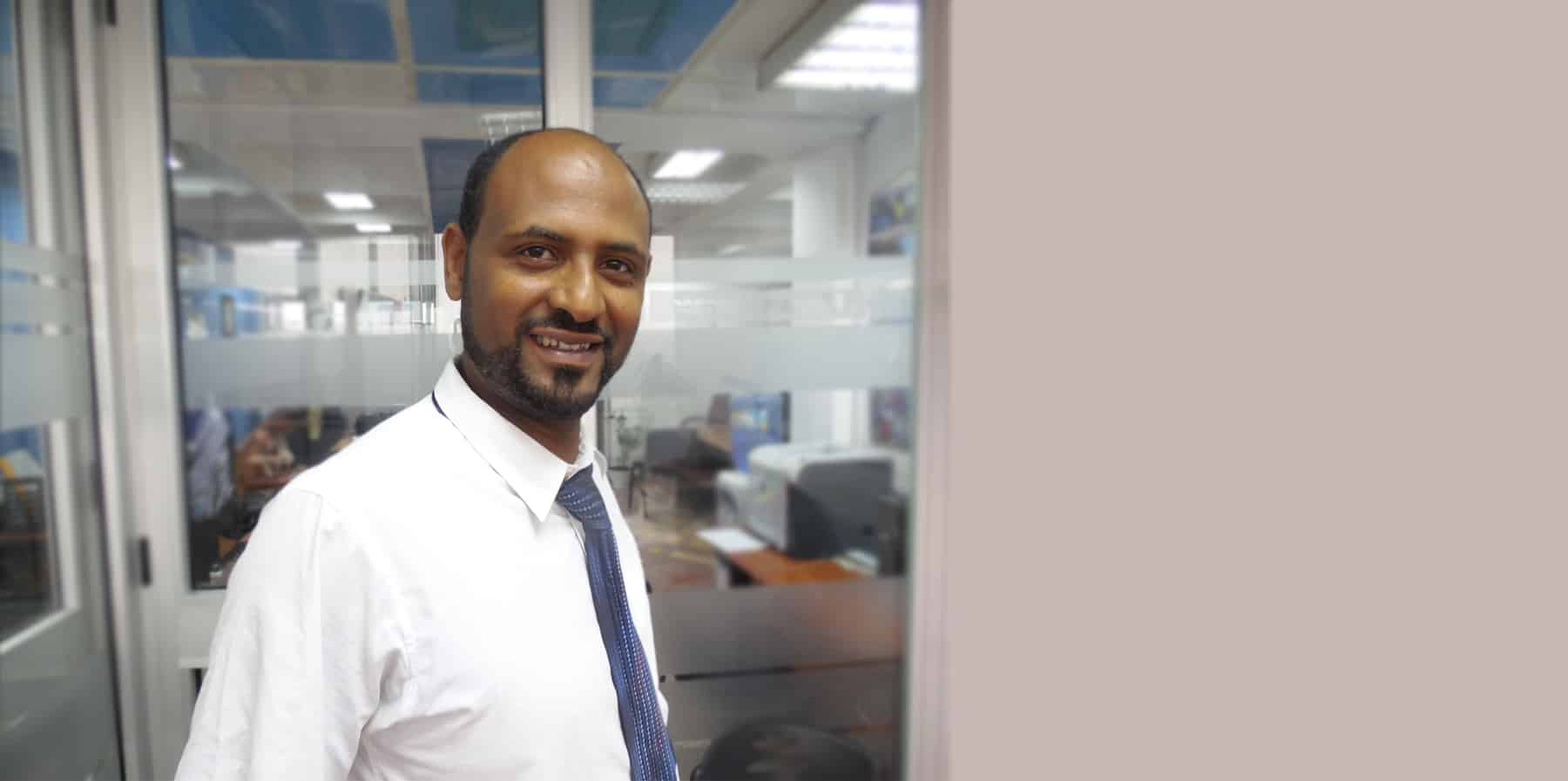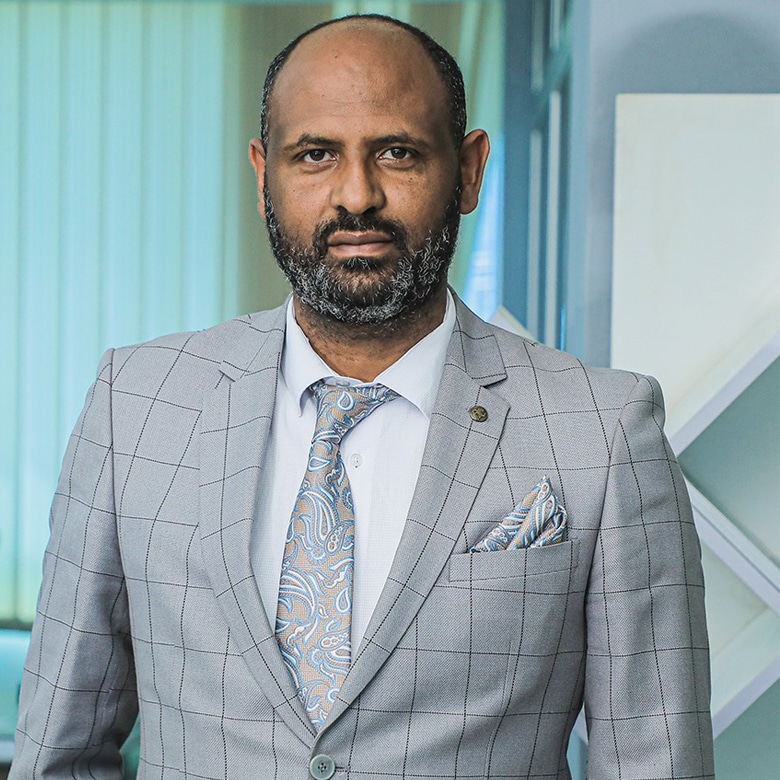How did your career journey lead you to Geneva Global?
My career began eighteen years ago as a logistics assistant driver in a local, non-governmental organization. I then moved on to a USAID-funded organization as a driver and logistics officer, and finally I worked for an international organization as a commodity logistics officer before joining Geneva Global.
I spent two years as a driver before returning to school myself, seeking a diploma in Human Resource Management Systems (HRMS). I then joined an international organization as a logistics officer. In that role, I spent time working on HIV/AIDs issues both internationally and in the local community. That specific project was supported by USAID, UNICEF, and European funders like Tear Fund, which gave me a chance to grow my project implementation knowledge. In parallel, I had been serving on a global medical mission team through Joyce Mayer Ministry as a logistics coordinator. During that time, I learned how big international organizations manage their program monitoring and evaluation work.
When I saw Geneva Global Ethiopia’s listing for Logistics Coordinator in 2008, I was incredulous. The role seemed as if it were designed with me in mind! It perfectly combined all the experience I had gained throughout my career and education and would allow me to work toward my passion of ensuring an organization’s program had a holistic back bone. I have not looked back since joining the team and feel extremely proud of all we have accomplished.
How has your role at Geneva Global evolved?
When I first joined Geneva Global Ethiopia in 2008, my title was “Logistics Assistant/Driver.” Shortly after, my title changed to “Logistics Coordinator.” Despite the name of my role during that time, I was actually assisting across all departments, like finance and programs, and management encouraged me to show my passion in different departments.
Geneva Global has been like a greenhouse for my professional development. I’ve worked my way up through the ranks of the organization, from the bottom to the top. In 2012, I became a program assistant, and my responsibility shifted to managing finance, programs, administration, and government relationships. The following year I became operations manager. After that, I studied project management at an Alison online school in the United Kingdom and got my business management degree from a local university. Since starting the implementation journey for the education program, I have gained a lot of skills and knowledge from my colleagues and by reading external resources. They have helped me provide technical assistance for the holistic operation of the program, including the management of operations within the organization itself. I’ve been the organization’s deputy country director since January 2019. Our leadership is amazing, which gives me a wonderful opportunity to show my enthusiasm and passion in my day-to-day life and work.
What fulfills you most about your role?
I enjoy my work for a variety of reasons. First off, I have a strong commitment to Speed School’s purpose of providing older students who have dropped out of school with a second chance. The improvement I notice in learners from the start of the year to the end of the year is astounding. I have seen the children’s learning results improve throughout the year. Furthermore, Speed School provides children with 21st century skills such as confidence, critical thinking, and collaboration. Even outside of the classroom, you can see how much they have changed and grown; you can tell that they are a lot more self-assured and willing to venture beyond their comfort zones. This serves as a reminder that we are not just providing kids with literacy and numeracy skills, but life skills.
Seeing other coworkers advance within the organization is another rewarding aspect of my work. I always want to be a teamwork facilitator, and I adore facing issues with my team, assisting them in coming up with solutions, and witnessing their growth as a result. I am lucky to fulfill this job not only for the GGE office staff but also for staff from the partner organizations with which we collaborate, and even the Speed School facilitators [classroom instructors].
How has the educational landscape changed over the last few years in Ethiopia?
Several decades ago, the material covered in Ethiopian primary schools’ curricula did not align with the realities that existed within the Ethiopian context. It was organized with a lot of content and content-based delivery methods. Teachers focused on finishing the chunks of content, not competency. Now, after 30 years, the government has understood and changed the curriculum to include indigenous knowledge and to be more competency-based according to the Ethiopian context. New curriculum has been introduced in the current academic year. Geneva Global has been implementing Speed School with competency-based curriculum and competency-based instruction methods for the last 12 years.
One new complexity is that the government is now starting to implement the new curriculum without competency-based instructional pedagogy methods. Geneva Global’s expertise is vital as Speed School’s instructional methods start to be implemented by the college of teachers participating in the government adoption program. GGI believes that the competency-based curriculum and instructional methods should follow three critical elements: enriching the lesson content and making it relevant by drawing on the local context; strengthening students’ ability to learn the lesson and making it relevant by making the lesson practical; and using the lesson content to help students strengthen their unique personal competencies.
What advice would you give to someone who wants to work in the international education space?
Everyone should be proactive and show commitment, and intrinsic motivation is one of the driving forces to do what you wish to achieve as a goal. I would also advise being passionate about the following life skills:
- Pay attention to feedback and act on it. Feedback can be difficult to accept at times. Top executives, on the other hand, have figured out how to take it seriously without taking it personally—and, more importantly, how to put it into practice.
- Solve problems: Anyone can put a complaint in the suggestion box, but coming up with solutions to those problems is the mark of a truly brilliant employee. Becoming a problem solver demonstrates that you care—not only about your own career, but also about the long-term health of the company.
- Commit to learning about the company, asking questions, attending conferences and courses, and constantly working to improve your skill set and learn new things.
- Have a positive mindset: Think positively and give your teammates opportunities to get involved in the work.
- Socialize with your team: My team has lunch together once a month with other colleagues, particularly when new staff have recently joined.
- Understand the cross-cultural setting and your organization’s values, goals, and mission.
What are you most excited about for the future of education and Speed School?
I am most proud of the joyful and vibrant Speed School class when I see children progress all around, particularly in life skills, which is one of the big foundational pillars of education: communication, decision-making, collaboration, problem-solving, critical thinking, and other 21st-century skills that they can apply to their day-to-day lives.
What are you reading right now?
I don’t often have time to read for pleasure these days. I spend most of my time reading about leadership and program improvement and organizational strategies. I’ve enjoyed Improve Your Conversations by Patrick King, The Mind of the Leader by Rasmus Hougaard and Jacqueline Carter, and 100 Things Project Managers Should Do Before They Die by Rita Mulcahy.
Where do you get your news?
For my news, I usually turn to local and international television, like BBC, CNN, and Fox News. I also read local newspapers, social media, and international nongovernmental newsletters. I try to make sure I get my news from diverse sources to avoid falling into the trap of biases which can sometimes be difficult but is always rewarding to understand the news from multiple perspectives.


